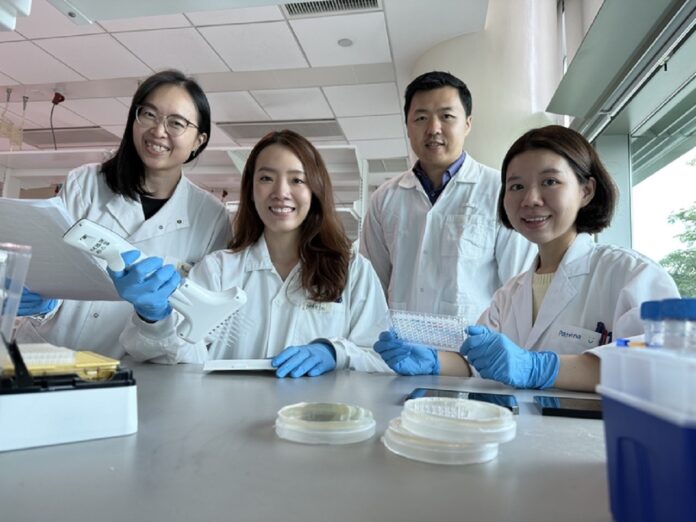Researchers at the Singapore-MIT Alliance for Research and Technology (SMART) have developed a new treatment for Mycobacterium abscessus, a non-tuberculous mycobacterium (NTM) that causes chronic lung infections.
The Antibiotic Resistance IRG is a translational research and entrepreneurship program addressing the growing danger of antibiotic resistance. They tackle AMR head-on by creating novel and revolutionary techniques to identify, respond to, and treat drug-resistant microbial infections using expertise and convergent technologies across Singapore and MIT.
Through strong scientific and clinical collaborations, they create innovative, holistic solutions for Singapore and the world. MIT founded SMART, and the NRF was founded in 2007. SMART is created initial entity, conducting cutting-edge research in the mutual interest of Singapore and MIT.
M. abscess is a common NTM that causes pulmonary infections in those with immune deficits or underlying lung diseases. Abscess infections are currently treated with a multidrug regimen that includes clarithromycin. However, specific subspecies develop resistance after repeated exposure.
It has also been linked to severe infections in other body regions, such as the skin, joints, soft tissues, and surgical sites. These infections are difficult to treat because of the bacterium’sbacterium’s considerable intrinsic resistance to many routinely used antibiotics.
Mycobacterium abscessus infections are treated with a multidrug regimen that includes clarithromycin. However, some Mycobacterium abscessus subspecies resist the antibiotic with repeated exposure.
There is an urgent need to identify compounds that are clarithromycin potentiators, as it is the mainstay of NTM treatments and the only highly effective oral antibiotic for treating M. abscessus infections.
The study, published in the journal JAC-Antimicrobial Resistance, revealed promising results on the use of rifampicin, an antibiotic commonly used to treat gastrointestinal bacterial infections, as a clarithromycin potentiator capable of increasing clarithromycin sensitivity and improving its ability to kill Mycobacterium abscessus.
The researchers conducted drug screening campaigns during the study’sstudy’s discovery stage and effectively discovered many medication candidates as clarithromycin potentiators. Further preclinical testing of these therapeutic candidates revealed that rifaximin is the most efficient clarithromycin potentiator, with the combination of rifaximin and clarithromycin demonstrating efficacy in vitro and a zebrafish embryo infection model.
MIT professor of biological engineering Peter C. Dedon, senior author of the paper and co-lead principal investigator at SMART AMR, said, “With limited treatments available due to M. abscesses’sabscesses’s innate resistance to most antibiotics, including clarithromycin, the novel discovery of the strong combination between rifaximin and clarithromycin is a significant step towards addressing the challenge of treating NTM infections. As FDA-approved drugs, we can quicken the process and translate the findings into improved treatment outcomes for patients suffering from Mycobacterium abscessus infections.”
Boon Chong Goh, the first author of the paper and principal research scientist at SMART AMR, said, “We recognize the urgent need to address the growing problem of clarithromycin resistance in Mycobacterium abscessus and are pleased to have discovered rifaximin as a potent clarithromycin potentiator. Despite being primarily used for gastrointestinal infections and having limited activity against drug-resistant M. abscessus, our study demonstrated the synergistic effect of rifaximin with clarithromycin in effectively eliminating the bacteria.”
The researchers are expanding their research with animal preclinical investigations to prepare for human clinical trials. Because both rifaximin and clarithromycin are FDA-approved, preclinical trials assessing their combination against Mycobacterium abscessus can be advanced. In addition, the team is working with a commercial manufacturing partner to develop inhalation formulations that will transport the drug combination straight to the lungs for use in human clinical trials.
The A*STAR Singapore Therapeutics Development Review, the SMART Innovation Centre, and the National Research Foundation (NRF) Singapore funded the research through its Campus for Research Excellence And Technological Enterprise (CREATE) program.
Journal Reference:
- Boon Chong Goh et al. Rifaximin potentiates clarithromycin against Mycobacterium abscessus in vitro and zebrafish. JAC-Antimicrobial Resistance. DOI: 10.1093/jacamr/dlad052
